Society for Conservation Biology Europe
Early Career Conservation Award 2025
This year, the Selection Committee was faced with an exceptional pool of candidates, and two individuals stood out equally for their outstanding accomplishments. In recognition of this, the Selection Committee decided to present the award to both candidates independently and in full, with each of them receiving the award in their own right.
2025 European Early Career Conservation Award Recipients
The 2025 Early Career Conservation Award recipients are Dr Volen Arkumarev, Bulgarian Society for the Protection of Birds (BSPB) / BirdLife Bulgaria and Dr Hanna Pettersson, University of York UK.
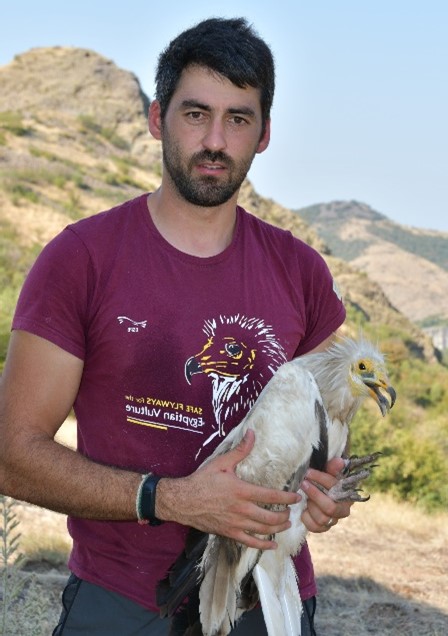 Dr Volen Arkumarev is a Bulgarian conservation biologist with over 16 years of experience in raptor research and conservation. He holds a PhD on the spatial ecology of Griffon Vultures and currently serves as Project Manager of the LIFE for Falcons project and Coordinator of the Egyptian Vulture restocking program in Bulgaria. He is a member of the IUCN Vulture Specialist Group and, since 2024, Editor-in-Chief of its journal Vulture News. As Flyway Conservation Officer under the Egyptian Vulture New LIFE project, he led the development of a methodology that mapped mortality risks across three continents. He also pioneered the evaluation of restocking methods (hacking, fostering, delayed release) for Egyptian Vultures in the Balkans, with findings now applied in practice and shared internationally through training programs he led. Volen’s conservation work is a brilliant example on how to integrate science, policy, and practice, grounded in innovation, evidence, and collaboration.
Dr Volen Arkumarev is a Bulgarian conservation biologist with over 16 years of experience in raptor research and conservation. He holds a PhD on the spatial ecology of Griffon Vultures and currently serves as Project Manager of the LIFE for Falcons project and Coordinator of the Egyptian Vulture restocking program in Bulgaria. He is a member of the IUCN Vulture Specialist Group and, since 2024, Editor-in-Chief of its journal Vulture News. As Flyway Conservation Officer under the Egyptian Vulture New LIFE project, he led the development of a methodology that mapped mortality risks across three continents. He also pioneered the evaluation of restocking methods (hacking, fostering, delayed release) for Egyptian Vultures in the Balkans, with findings now applied in practice and shared internationally through training programs he led. Volen’s conservation work is a brilliant example on how to integrate science, policy, and practice, grounded in innovation, evidence, and collaboration.
SCB Europe is delighted to present the 2025 Early Career Conservation Award to Dr Volen Arkumarev for his extraordinary contributions to raptor conservation through scientific innovation, international collaboration, and leadership in restoring endangered species across Europe, the Middle East, and Africa.
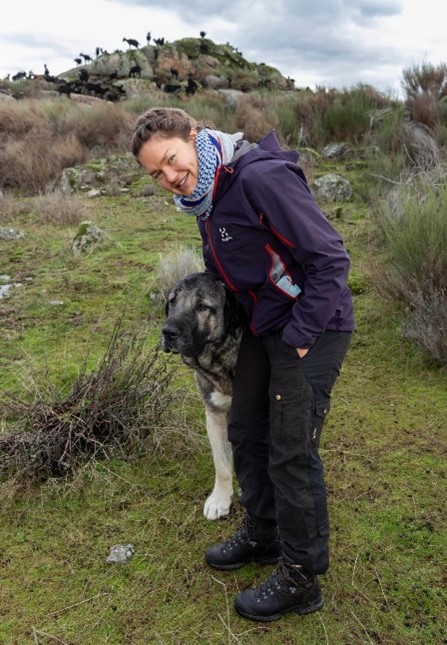
Dr Hanna Pettersson is an emerging expert in human-wildlife interactions, with a focus on the preconditions that enable coexistence. She serves on a wolf conflict mediation panel in Spain and is an external advisor to an EU Horizon project on co-creating coexistence. At the Centre for Anthropocene Biodiversity, University of York, her current project builds on her previous work, expanding it to explore an Incentive Payment Scheme in northern Sweden. Her project adopts a transdisciplinary approach to evaluate the implementation of a new monitoring method for wolverines, its effect on the payment scheme, and its role in promoting trust and justice in carnivore management. She aims to combine her case studies in wildlife management with those on conflicts and just transitions in other systems, and to contribute to ongoing efforts by IPBES, the IUCN and others to embed social science into the development of coexistence programmes.
SCB Europe is delighted to present the 2025 Early Career Conservation Award to Dr Hanna Pettersson, the leading early-career researcher in the field of human–carnivore coexistence and the design of effective coexistence programmes.
2024 European Early Career Conservation Award Recipient
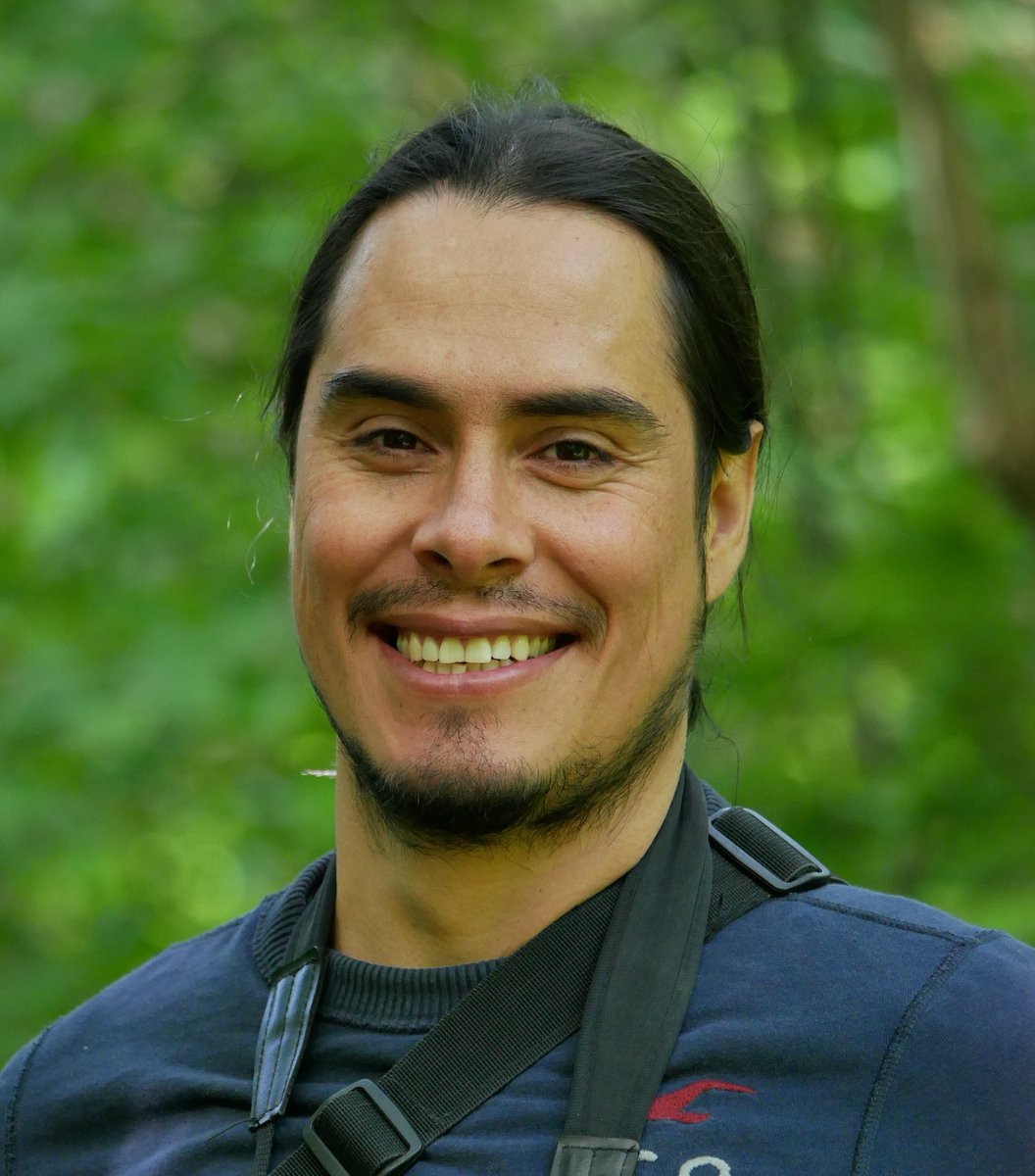 The 2024 European Early Career Conservation Award of the SCB Europe Region was awarded to Dr Alfredo Romero-Muñoz. Dr Romero-Muñoz received the Award for his remarkable contributions to understanding and solving conservation challenges in South America deforestation hotspots and guiding conservation planning and environmental policy in Bolivia and throughout South America.
The 2024 European Early Career Conservation Award of the SCB Europe Region was awarded to Dr Alfredo Romero-Muñoz. Dr Romero-Muñoz received the Award for his remarkable contributions to understanding and solving conservation challenges in South America deforestation hotspots and guiding conservation planning and environmental policy in Bolivia and throughout South America.
Alfredo Romero-Muñoz is a conservation scientist focused on assessing how different human activities affect biodiversity, and what actions could be effective at reducing threats. He completed his PhD in 2020 at the Humboldt University in Germany and is now working as a postdoctoral researcher in the Conservation Biogeography Lab.
His work explores the impact of extinction drivers – such as habitat loss and overexploitation - on biodiversity at various levels, from individual species to entire communities. These insights have practical implications for conservation planning, including identifying biodiversity hotspots and the geographic footprints of threats, thereby informing policy interventions at local, national, and regional levels. His engagement with Indigenous leaders and scientists in policy negotiations has amplified Indigenous voices, leading to meaningful dialogues. Collaborating with NGOs, he connects research with practical actions, focusing on human-wildlife coexistence and conservation planning. His involvement extends to policy revisions and legal cases against environmental crimes. He contributed to assessing the environmental risks of the EU-Mercosur agreement and served as an expert on reports by GermanWatch and the European Center for Constitutional and Human Rights (ECCHR) to help assess policy options to reduce deforestation associated with EU imports, and legal actions against European companies with large social and environmental impacts in South America.
He collaborates with other conservation biologists, wildlife ecologists, social scientists, and land use scientists to assess human-biodiversity interactions across large areas but with a high resolution, that could be useful to inform management strategies. Alfredo mainly focuses on agricultural frontiers of South America, where human impact is the greatest for biodiversity.
Website: hu.berlin/ARomero
Twitter: @Alf_RomeroM
2023 European Early Career Conservation Award Recipient

The 2023 European Early Career Conservation Award of the SCB Europe Regoin was awarded to Dr Martin Jung. Dr Jung received the Award for his remarkable contributions to the conservation science through his work on integrated spatial planning and impact assessment of national and regional conservation and land-use policies.
Dr Jung is a conservation researcher focusing his work on conservation planning, biogeography, and integrated assessments of environmental policies. He completed his DPhil in 2019 from the University of Sussex and has since been working at the International Institute for Applied Systems Analysis (IIASA) in Laxenbourg, Austria.
His scientific research broadly focusses on the nexus of land use, food production, biodiversity indicators and conservation planning. Specifically, he is very much interested in how we can bring the best-available biodiversity data into decision making processes. Moreover, he has studied the influence of temporal lags in our understanding of biodiversity change and effectiveness of conservation interventions, providing scientists and practitioners with robust environmental datasets and accurate biodiversity indicators. Finally, his work has led to the creation of spatial and temporal scenarios and predictions of what-if assumptions and plausible future for humankind and wildlife on this planet.
Martin is currently a PI in the INSPIRE project where he leads an integrated spatial planning framework for local scale habitat conservation, restoration, and sustainable farming, with a focus on sustainable water management in the Neusiedl See – Seewinkel region in eastern Austria. At the European scale, Dr Jung is in the Project Management Committee and a Work Package Leader of the NaturaConnect, a Horizon Europe project, which has been tasked to provide a blueprint of conservation priorities against which EU Member States protected area pledges are benchmarked. Martin’s work in this project will impact decision-making for the achievement of the protected area targets at the EU level and in several member states. At the global scale, Martin’s analysis of areas of significance for biodiversity, carbon and water has inspired several countries in identifying priority areas for multiple objectives under an integrated spatial planning framework. His work has also influenced TNC regional and national strategies for landscape planning and supporting sustainable food systems.
His contributions to the Bending the Curve of Biodiversity research and the PREDICTS database and modeling framework, which continues today through scenarios and forecasts of species and community responses to land-use change is expected to strongly affect the way environmental impact assessment of policies is done in Europe, both at a scientific and practical level.
Website: https://www.martinjung.eu/#about
Twitter: @Martin_Ecology
2022 European Early Career Conservation Award Recipient
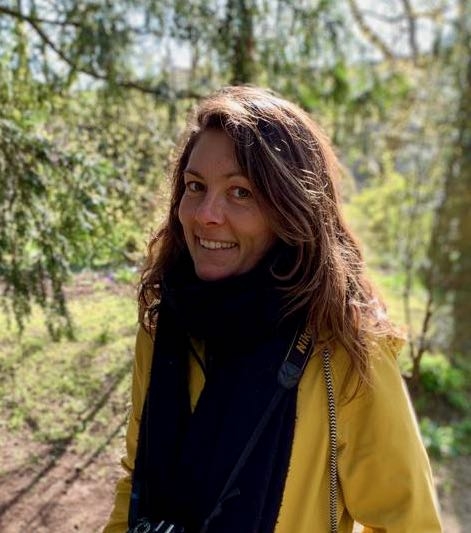 Dr Hollie Booth received the European Early Career Conservation Award from the SCB Europe Region in 2022 for her extraordinary contributions to the conservation of sharks and rays whilst also protecting coastal livelihoods, though applied interdisciplinary research to inform conservation action.
Dr Hollie Booth received the European Early Career Conservation Award from the SCB Europe Region in 2022 for her extraordinary contributions to the conservation of sharks and rays whilst also protecting coastal livelihoods, though applied interdisciplinary research to inform conservation action.
Dr Booth is a conservation researcher and practitioner who has spent the last decade designing and implementing conservation projects and conducting applied interdisciplinary research to inform effective and equitable policy and practice. She completed her DPhil in 2022 from the University of Oxford; focused on applying methods from social sciences and economics to inform behavioural and structural interventions for marine megafauna conservation, with a particular focus in endangered sharks and rays.
A large component of her research focused on developing market- and incentive-based approaches to marine conservation, and novel financing mechanisms. For example, exploring how performance-based payments could help to deliver biodiversity and human well-being outcomes in small-scale fisheries; how marine tourism levies could be leveraged to cover the opportunity costs of conservation for coastal communities, and thus support more just and equitable marine conservation; and how bycatch levies could reconcile ambitions for blue growth and biodiversity conservation.
As well as grounded action research at the local level, Dr Booth also proposed how these mechanisms could fit within the Convention on Biological Diversity’s post-2020 framework, with differentiated pathways towards shared goals of nature recovery. She Co-Chairs the Human Dimensions Working Group of the IUCN Shark Specialist Group, co-leading the development of the Wildlife Conservation Society’s global shark and ray strategy, mentoring students as part of Oxford’s graduate access program (UNIQ+), and facilitating exchange visits to Oxford for early career researchers from SE Asia.
2021 European Early Career Conservation Award Recipient
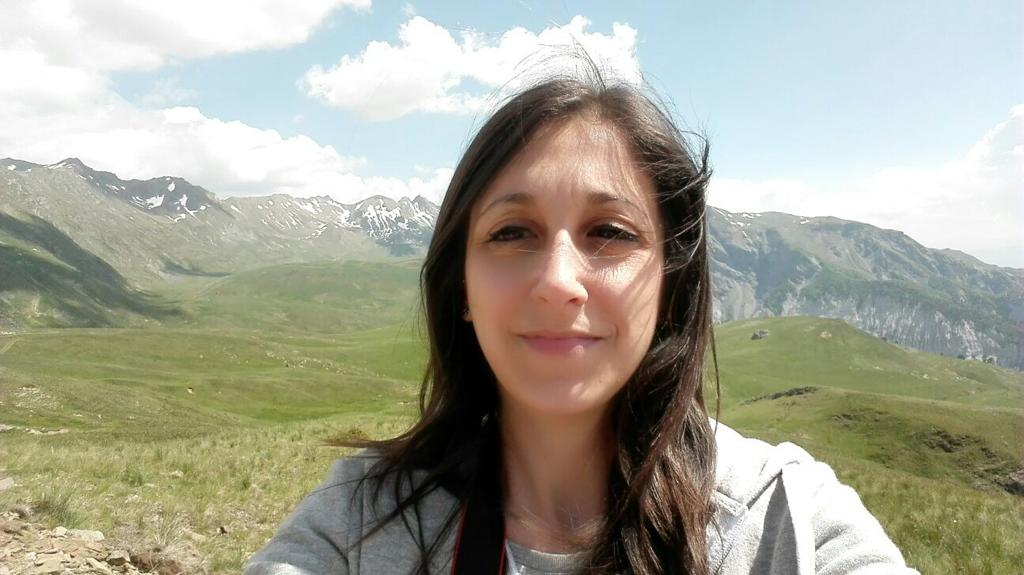 Dr Michela Pacifici received the European Early Career Conservation Award from the SCB Europe Region in 2021 for extraordinary contributions to the conservation of biodiversity through leadership in global change studies aimed at reducing species’ risk of extinction. Dr Pacifici is a Postdoc at Sapienza University of Rome, has been Adjunct Professor at University of Bologna and a consultant for several conservation NGOs. She completed her PhD in 2016 from Sapienza University of Rome.
Dr Michela Pacifici received the European Early Career Conservation Award from the SCB Europe Region in 2021 for extraordinary contributions to the conservation of biodiversity through leadership in global change studies aimed at reducing species’ risk of extinction. Dr Pacifici is a Postdoc at Sapienza University of Rome, has been Adjunct Professor at University of Bologna and a consultant for several conservation NGOs. She completed her PhD in 2016 from Sapienza University of Rome.
In recent years, she has been increasingly committed to performing international research in conservation macroecology, a multidisciplinary field aimed at predicting and preventing the impact of human activities on broad-scale biodiversity processes and patterns, where her work has been fundamental for the development of a research project aimed at evaluating the drivers of change in species’ distribution.
The work Dr Pacifici has done so far has been the essential basis for the drafting of key IUCN documents used by scientists and practitioners to select the best approach to assess species’ vulnerability to climate change and her work to identify favourable reference values for the status of mammal populations is used as standard by the EU.
2020 European Early Career Conservation Award Recipient
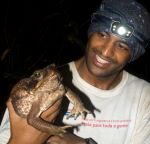 Dr Ricardo Rocha received the European Early Career Conservation Award from the SCB Europe Region in 2020 for making a significant contribution to conservation science and practice while helping to make conservation a better and more inclusive place for everyone.
Dr Ricardo Rocha received the European Early Career Conservation Award from the SCB Europe Region in 2020 for making a significant contribution to conservation science and practice while helping to make conservation a better and more inclusive place for everyone.
Ricardo finished his PhD in 2017 from University of Lisbon and University of Helsinki. Doing his PhD, he conducted 2½ years of fieldwork in the Brazilian Amazon, where he used the Biological Dynamics of Forest Fragments Project to investigate the long-term effects of fragmentation on bats as well as initiated and co-led numerous innovative socio-ecological side-projects on a wide range of taxa and conservation questions. He recently started a prestigious three-year postdoctoral fellowship at the Research Centre in Biodiversity and Genetic Resources, University of Porto, funded by Madeira’s Regional Agency for the Development of Research, Technology and Innovation, to work on the role of bats as suppressors of agricultural insect pests and human disease vectors in Madeira, Portugal.
Ricardo is an exceptional young conservation scientist: he has published over 30 papers, largely in tropical field ecology. Ricardo’s productivity comes from a combination of his deep interest in finding out answers to ecological questions, his field skills and his limitless energy and enthusiasm. He has managed to fill some important knowledge gaps in fragmentation ecology by bringing in the less-well studied taxon of bats. The bulk of Ricardo’s research has produced information that is of direct relevance to on-the-ground conservation. For example, his work in Madagascar has shown that insectivorous bats have a great potential to prevent major insect pest outbreaks and consequently can provide valuable services to farmers and guide them in biodiversity-friendly agriculture.
Ricardo is whole-heartedly engaged in the work of multiple NGOs and in environmental education. He is a founder member of the Portuguese Association of Herpetology and collaborates with the Spanish Association for the Conservation and Research of Bats. As a student he assisted in the coordination of the Eco-Schools programme in Portugal.
Ricardo is actively engaged in public outreach. He has published a highly valuable field guide to the bats of the Amazon and recently was scientific advisor to a Lonely Planet non-fiction book ‘Wild in the City’ aimed at encouraging children to look for nature wherever they may live. He actively campaigns for public awareness of biodiversity and his work often features in national and international periodicals and conservation websites e.g. National Geographic Magazine and mongabay.com. He has served on the editorial board of the Portuguese Society for the Study of Birds’ magazine: Pardela. Ricardo’s public outreach in advocating for equality and inclusion in STEMM is particularly impressive. Since 2015, he has been an active member of the Committee for Equality, Diversity and Inclusion of the Society for Conservation Biology and of the BAME Network of the University of Cambridge.
2018 European Early Career Conservation Award Recipient
Dr Piero Visconti received the European Early Career Conservation Award from the SCB Europe Region in 2018 for his scientific contribution to the understanding of species and ecosystems response to global changes and his extraordinary engagement in the science-policy interface.
Piero finished his Ph.D. in 2011 jointly between James Cook University and Sapienza University of Rome, and is now the Springboard Research Fellow at the Centre for Biodiversity and Environment Research of University College London and the Institute of Zoology of the Zoological Society of London. He is an exceptional researcher who has published many articles that moved forward the scientific fields of global environmental change, spatial conservation prioritization, and extinction risk analysis, as well as influenced policy to achieve real-world impact of his science.
Piero was Coordinating Lead Author of Chapter 3 of the IPBES Regional Assessment of Europe and Central Asia, “Status, trends and future dynamics of biodiversity and ecosystems services”. He also contributed to the Global Biodiversity Outlook 4 as Lead Author of two chapters, and the IUCN Guidelines on Climate Change Vulnerability Assessment. Piero was also on the scientific advisory board of the IUCN task-force that established the criteria for the identification of the IUCN Key Biodiversity Areas.
Piero is also involved in the conservation of the Marsican Bear, a critically endangered subspecies of brown bear in central Italy. Piero's been involved in reduction of human-wildlife conflicts fundraising and leadership on conservation projects, and more recently membership of the advisory board of Rewilding Apennines, the Italian partner of the Rewilding Europe Network.
Besides these impressive achievements, he has been incredibly important within SCB, especially the Europe Region, of which he was board member from 2011 and President in 2015-2016. During this time, he played a pivotal role as chair of the Scientific Committee of ICCB/ECCB2015 in Montpellier, France, at the time the largest ICCB conference ever organized, with over 2,000 participants.
In his capacity as research fellow at two of the most prestigious conservation research organizations in Europe, he has also engaged whole-heartedly in the teaching and supervision of future conservation scientist and practitioners.
Piero's achievements were acknowledged by the SCB Europe Region with the European Early Career Conservation Award, and he will give a guest-keynote talk upon receiving his prize at the Student Conference on Conservation Science in Tihany, Lake Balaton on September 5, 2018.
Read about Dr. Attila Nemeth, winner of the first Early Career Conservation Award in 2016.